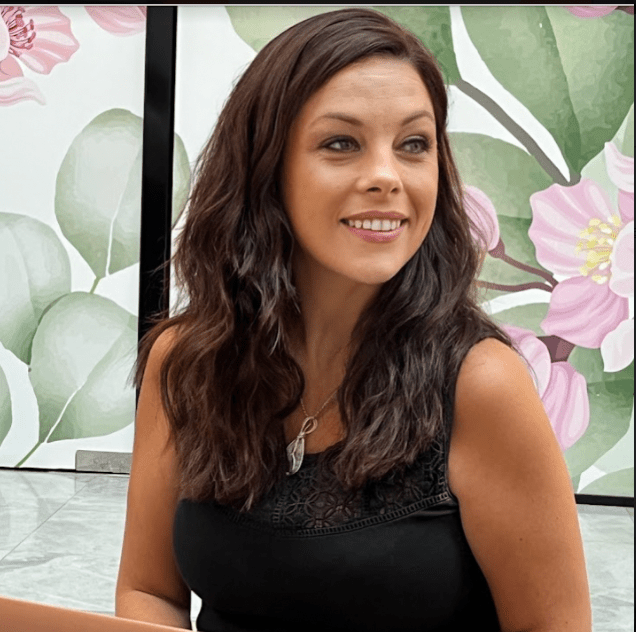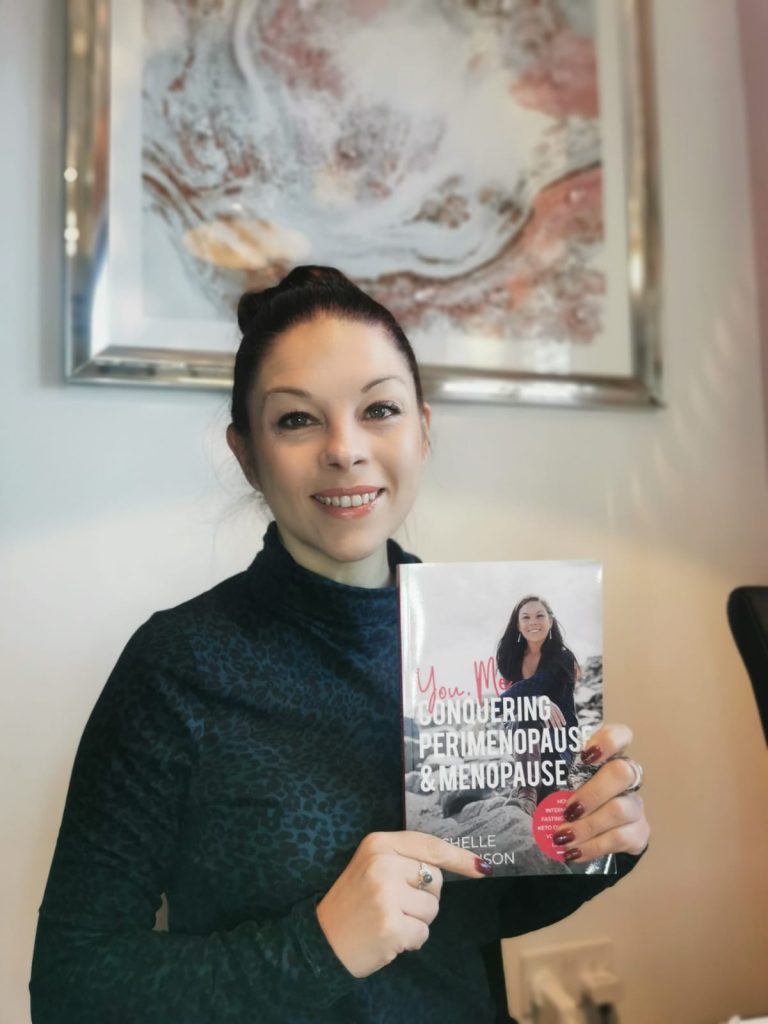
Navigating Menopause: Staying Ahead, Building Empowerment
In this comprehensive guide, discover how Michelle Rowlinson ensures top-notch support for clients navigating menopause by staying ahead of the curve with the latest treatments and strategies. Explore personalized approaches to managing emotional and psychological complexities within familial and work relationships, and learn about unique menopause wellbeing programs blending expertise and mindfulness techniques. Delve into taboo topics like sexual health with care and respect, and uncover real-life case studies showcasing effective strategies. Gain insights into managing menopause symptoms in the workplace and supporting women from diverse backgrounds. Plus, explore the legacy on how Michelle aims to leave in the field of menopause wellbeing, inspiring the next generation of healthcare professionals to prioritize women’s health. Embark on your menopause journey with confidence and empowerment today!
How do you evaluate and stay updated on the latest treatments and strategies in menopause wellbeing to ensure the most effective support for your clients?
To ensure I provide effective support for my clients, I stay updated on menopause well-being through various methods. This includes staying informed on the latest research and findings in menopause management by reading new studies, articles, and guidelines from trusted sources.Additionally, I use feedback from my trainee GP training sessions and client workshops to enhance both these sessions and the advice I offer to my individual clients. I also engage in professional networks and online communities focused on menopause and women’s health for exchanging ideas and discovering new strategies. Listening to client feedback is essential in tailoring support to individual needs. By combining these approaches, I continuously adapt my practices to offer the best support to women experiencing menopause.
Can you provide insight into the ways you help women navigate the emotional and psychological complexities of menopause, particularly within familial and work relationships?
Navigating the emotional complexities of menopause is a significant aspect of my work. I provide holistic support that addresses physical symptoms as well as mental and emotional challenges.
Through personalized 1-to-1 sessions, we create a safe space for women to express their feelings and concerns, focusing on their emotional and psychological needs. We explore coping strategies like mindfulness, stress management, and communication skills to manage mood swings and emotional upheaval, promoting healthier relationships.
I prioritize education and awareness by conducting menopause workshops for women and their families and colleagues, encourages empathy and understanding to reduce stigma and isolation. I advocate for open communication and setting boundaries to manage expectations and conflicts at home and work, empowering women to navigate menopause confidently with support from all facets of their lives.
What are the key aspects of your menopause wellbeing programs that differentiate them from other support available, and how do you measure their success?
My menopause wellbeing programs offer a comprehensive approach by blending personalized support, physiotherapy expertise, and mindfulness techniques. Tailored to individual needs, they address specific symptoms and lifestyle factors.
Drawing from my experience as a senior MSK physiotherapist, I integrate targeted exercises to address musculoskeletal issues common in menopause. Mindfulness techniques like meditation and breath work, informed by emotional change therapy, help manage psychological and emotional aspects.
I also conduct tailored menopause awareness workshops for businesses, expanding support networks in the workplace. Success is gauged through client feedback and measurable improvements in symptoms and wellbeing, with ongoing adjustments to ensure relevance and effectiveness.
Combining physiotherapy expertise with mindfulness and personalized care, my programs provide holistic support for navigating menopause.
How do you approach the topic of sexual health during menopause, which is often regarded as a taboo subject, within your coaching sessions?
Discussing sexual health during menopause, a sensitive and sometimes taboo topic, is approached with care and respect in my coaching sessions. I aim to create an environment where this, like all aspects of menopause, can be openly discussed without judgment.
I normalize the conversation around sexual health, acknowledging changes as common and legitimate health concerns. Privacy and confidentiality are ensured, creating trust and encouraging clients to share freely.
Tailoring my approach to each individual’s comfort level, I provide practical advice on managing common changes like vaginal dryness or decreased libido. I also address psychological barriers through techniques from emotional change therapy, helping clients overcome anxieties or misconceptions about sexual health during menopause.
Could you give an example of a particularly challenging case you have encountered in your practice, and how you worked with the individual to improve their menopausal experience?
Certainly. One challenging case involved a client experiencing severe hot flashes and night sweats, impacting her sleep and daily life. Feeling isolated after being told she was too young for menopause, she believed her experience was uncommon.
First, validating her feelings and explaining the commonality of menopausal symptoms was crucial. We then focused on practical strategies like lifestyle changes, exercise, and relaxation techniques to manage symptoms. We discussed hormone replacement therapy (HRT) options and tailored an exercise program to her needs.
To address her isolation, I encouraged participation in support groups and educated her on menopause stages and symptoms. Over time, she reported significant improvement and felt more in control of her experience, appreciating the personalized support.

What strategies do you recommend to clients for managing menopause symptoms in the workplace, and how do you collaborate with employers to implement these?
For managing menopause symptoms at work, I recommend personalized coping strategies and workplace adjustments tailored to the individual’s needs:
Personal Coping Strategies:
- Hydration and Nutrition: Encourage regular hydration and a balanced diet for energy and wellbeing.
- Stress Management: Practice deep breathing, mindfulness, or short walks to reduce stress.
- Sleep Hygiene: Emphasize good sleep habits to address issues like night sweats.
Workplace Adjustments:
- Flexible Hours: Discuss options like flexible hours or working from home for days with severe symptoms.
- Temperature Control: Advocate for adjusting office temperature or providing fans.
- Break Schedules: Push for flexible breaks to accommodate increased needs, like more frequent restroom visits or rest periods.
Collaboration with Employers:
- Education: Offer workshops to educate employers about menopause and its workplace impact.
- Policies: Assist in developing menopause-friendly policies promoting flexibility and support.
By combining personal strategies with employer cooperation, we aim to create a supportive work environment that enhances women’s wellbeing and productivity during menopause.
How does your approach cater to women who might experience menopause differently due to factors like ethnicity, cultural expectations, or socioeconomic status?
My approach to menopause acknowledges and respects the diverse experiences shaped by ethnicity, culture, and socioeconomic status. I strive to offer an inclusive, empathetic, and responsive service that caters to the varied needs of all women.
Recognizing that women from different ethnic backgrounds may perceive menopause differently and face cultural barriers, I ensure cultural sensitivity and adaptability in my approach. This includes offering support in ways that respect individual comfort levels and cultural norms.
I also address socioeconomic disparities by providing scalable solutions, such as free support groups and accessible online resources, to overcome barriers like limited healthcare access and financial constraints.
Tailoring support based on cultural background, beliefs, and specific concerns, I aim to empower all women to navigate menopause confidently. My goal is to ensure every woman, regardless of ethnicity, culture, or socioeconomic status, feels heard, respected, and adequately supported on her menopause journey.
In what ways do you involve family members or partners in your menopause wellbeing sessions, if at all, and what value do you believe this brings to the client?
Involving family members or partners into menopause wellbeing sessions can be highly beneficial, always prioritizing the client’s consent and comfort.
One key method is through education, where I provide information about menopause and its effects on physical and emotional wellbeing. This helps demystify menopause, creating a supportive home environment.
We also discuss joint coping strategies, like lifestyle changes, to support the client’s wellbeing. Involving partners or family members creates a shared commitment and can strengthen relationships.
This approach educates and empowers support networks, reducing isolation and misunderstanding for the client. It creates improved communication and relationships, making menopause a shared journey rather than a solitary struggle.
Can you touch upon the role of mental wellbeing interventions, such as mindfulness or cognitive behavioral therapy, in your menopause support services?
In my menopause support services, mindfulness techniques like meditation and breath work play a central role in managing emotional and mental challenges. Meditation creates inner peace and clarity, aiding in mood management and anxiety reduction. Breath work provides immediate relief from symptoms like hot flashes and panic attacks by influencing the body’s stress response.
These practices empower women with tools for long-term wellbeing, bringing control and tranquility to what can be a tumultuous time, enhancing overall quality of life during menopause.
What kind of legacy do you wish to leave in the field of menopause wellbeing, and how do you plan to inspire the next generation of healthcare professionals to carry on this important work?
My vision for my legacy in menopause wellbeing is twofold: empowering women to navigate menopause confidently and inspiring healthcare professionals to prioritize menopause care.
I aim to leave a legacy where women no longer feel alone or unsupported during their menopause journey. I want to empower them with knowledge, strategies, and a sense of agency over their wellbeing. I hope to inspire women to embrace menopause as a natural phase
of life and to approach it with resilience and positivity.
Through awareness campaigns and educational efforts, I strive to challenge the stigma surrounding menopause, creating a cultural shift where it receives the attention and support it deserves.
In terms of healthcare, I plan to mentor and educate future practitioners on the importance of menopause care. By collaborating with medical schools and training programs, I aim to integrate menopause education into curricula, ensuring that all healthcare professionals are prepared to provide comprehensive and empathetic care.
My legacy is one of empowerment, education, and advocacy for menopause wellbeing, aiming for a future where women receive the support they deserve and healthcare professionals are equipped to deliver quality care in this vital area.

Our Journey in 12 Months:
Our Journey in 12 Months – Global Woman Magazine
5 Things That Show Money is Not Evil:
5 Things to Show That Money Is Not Evil – Global Woman Magazine
Global Man Magazine Page:
Global Woman, Global Man: Socials:
Global Woman Magazine (@global_woman.magazine) • Instagram photos and videos





